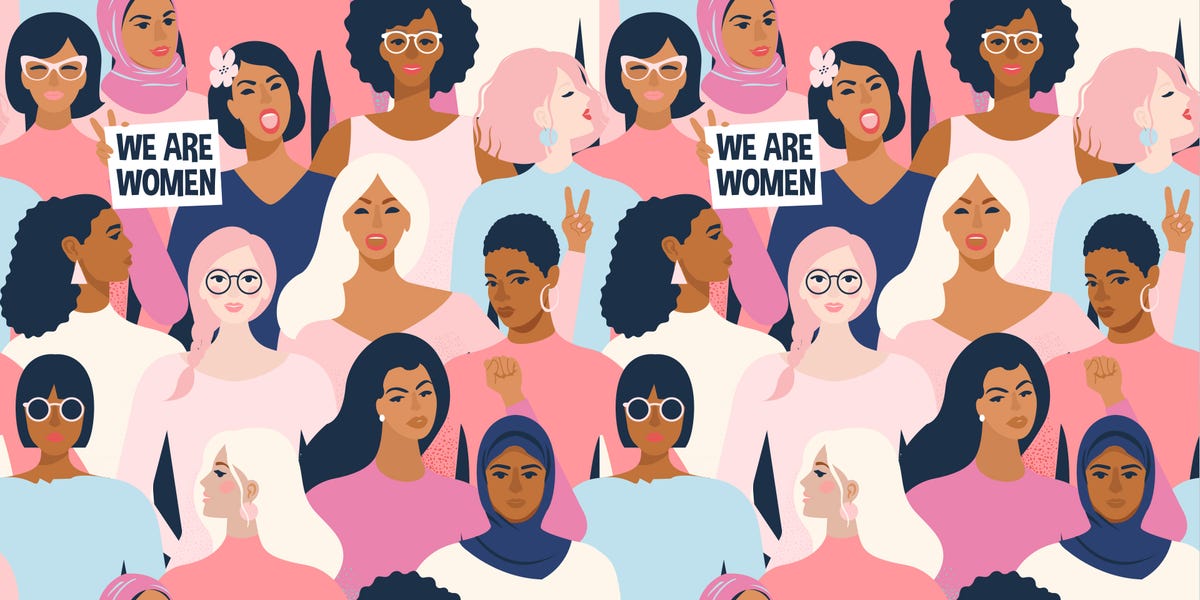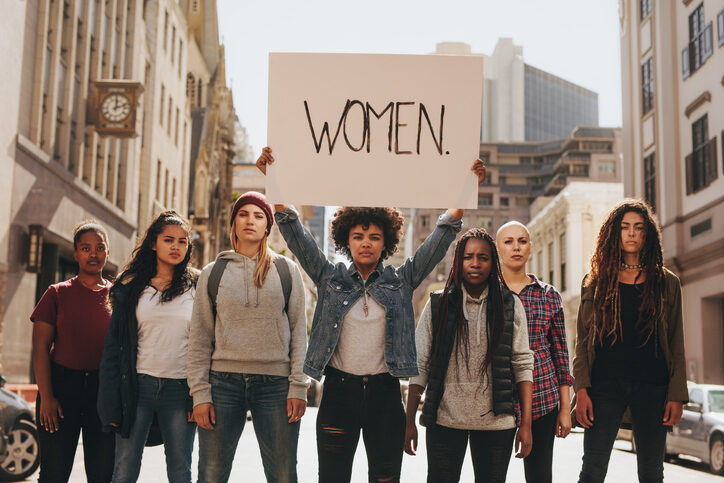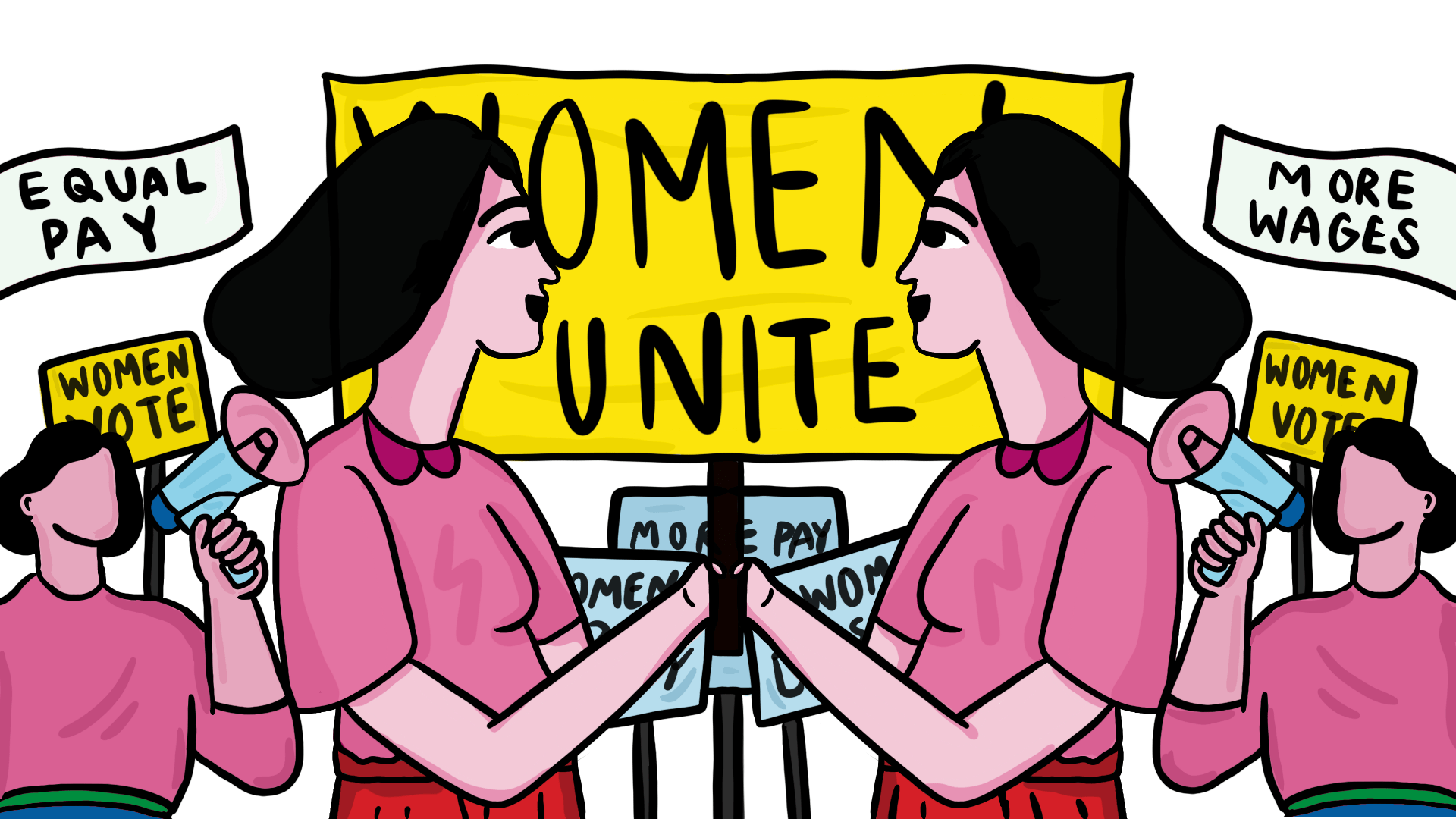We are living in the post-human and post-structural era when we are relating through the medium of technology, emojis and modes of communication outside the human touch. Feminist discourse has been deliberating about the reimagination of existing codes, norms and constructions which restrict mobilities, modalities and multiple approaches to work cultures, policy-making and social relationships.
Communities, non-human living systems and mechanical tools are transitioning towards a pluralistic world which would rather make specific inclusions and discard self-involved silos. As we are moving toward fluid identities, spaces and physical structures to be particular and also completely diverse interdisciplinary approaches in higher education and social engagements, we are working towards post-structural feminism, which is self-critical, analytical and hyper-reflective in nature. These revelations are compelling the people to be outside the realm of any ism and de-construct the entire feminist discourse of diversity, liberation, and universality into context-specific dynamic insights.
Women particularly are leading dual lives of being accepted within their binary existence of convenience and their feminist zeal of being conscious, fluid and contemplative. In this context, it is very interesting to position women’s struggles of lifetimes getting recognised within the university space where women school educators, women’s movement leaders and women homemakers collectivising to address the issues of inequities, discontents, and social exclusion.

Just recently, some students were discussing how they are not feminists, but they are interested in understanding the plight of the vulnerabilities of diverse groups of women and non-male identities. On another occasion, some male friends shrugged off their labels of being feminists when they discussed equal pay, the right to rest during periods and respecting women’s perspectives in any of the academic discourses. In a public meeting, the Honorable Minister for Women and Child Development from India shared that she was a humanist rather than a feminist.
Being feminist is gradually becoming a matter of western conceptualisation and discourse which doesn’t seem to be rooted in the tenets of Indian knowledge systems and cultural mores. Feminism emerged in the Indian context much before it was recognised in the west. Pandita Ramabai, Fatima Bai and Savitri Bai Phule, to be specific, in the Indian educational context. Even the feminist discourse was ingrained into the Constitution of India, where the huge number of women from diverse caste, educational, social, cultural, and community backgrounds have been included.
The constitutional categorisation of sex is not limited to women alone. It profoundly mentions about non-discrimination of people from diverse backgrounds. Women, in particular, had a social positioning in the pre-and post-independence era, which translates to nation-building, social inclusion, community mobilisation and institution building of exclusive contexts. In today’s context, such imaginations have reached a very different height which might be redefined with the changing times and moments in the paradigm of time and space.
Being feminist is gradually becoming a matter of western conceptualisation and discourse which doesn’t seem to be rooted in the tenets of Indian knowledge systems and cultural mores. Feminism emerged in the Indian context much before it was recognised in the west. Pandita Ramabai, Fatima Bai and Savitri Bai Phule, to be specific, in the Indian educational context. Even the feminist discourse was ingrained into the Constitution of India, where the huge number of women from diverse caste, educational, social, cultural, and community backgrounds have been included.
It is gradually becoming a fascinating context for men to be feminists to remain included in the gendered spaces and for women to go beyond feminism to be accepted in non-female spaces. In a recent award ceremony, the award was given to a woman from the grassroots women’s organisation Tezpur District Mahila Samiti by the Centre for Women Studies of Tezpur University by a male parliamentarian which was received by a male relative of the awardee. In this context, the men were representatives of the women they admired, cared or respected in their journeys of life.
While understanding the unsung, unaccounted, undocumented public lives of women, we have realised that in the name of confidentiality and research ethics, we have discovered and restored the private lives of women so much that we have forgotten the public and professional lives of women in feminist academic pursuits. Feminist discourse is ever-evolving and engaging, which translates the micro lives of women and other genders in such a way that it gets diluted in the layers of innumerable social expectations and vulnerabilities.
Feminist discourse has evolved manifold with the inclusion of all genders in discussing reproductive health, childbirth, and menstruation. Gender fluidities are gradually setting into the larger discourse of social development and community understanding of social movements.
Women particularly are leading dual lives of being accepted within their binary existence of convenience and their feminist zeal of being conscious, fluid and contemplative. In this context, it is very interesting to position women’s struggles of lifetimes getting recognised within the university space where women school educators, women’s movement leaders and women homemakers collectivising to address the issues of inequities, discontents, and social exclusion.

Awarding a woman activist is a matter of recognising the community role of a woman whose entire lifetime of 94 years is rooted in the process of creating educational alternatives for children and women in distress. Tezpur District Mahila Samiti is an embodiment of resilience, resistance and reimagination of women’s assertion towards justice, equality, and dignity.
This organisation has been standing tall since the 1920s, addressing women’s trials, tribulations, and tragedies. It has strengthened the communities of women in delivering needs, asserting rights, and ensuring sustainability. They have been promoting traditional product creation and addressing the post-modern needs of communities as well through their handwoven, hand-stitched and hand-made product line.
They have also ensured that the modern skill enhancement systems are also encouraged in parallel lines to make sure that students and communities benefit from computer courses and financial literacy groups. Now women’s agencies are engaging with policy advocacy, social inclusion, and community development issues through their silent yet consistent presence.
The institutional spaces of women’s agencies have become a matter of formality in today’s era of digital dominance. Women-specific support, resources, agendas, and solidarities are either through the media or through social media. Any group non-conversant with the latest technology does not find space in the CSR-supported and donor-driven projects.
Feminist discourse has evolved manifold with the inclusion of all genders in discussing reproductive health, childbirth, and menstruation. Gender fluidities are gradually setting into the larger discourse of social development and community understanding of social movements.

Feminist of one’s own context is crucial, but it needs to be aligned with the global discourse on the feminist struggle as well. Tezpur District Mahila Samiti, that way, is at the threshold of converging the traditional and post-modern context of women’s emancipation. When the queer pride committee explored the possibilities of getting the Pride Flag woven through the weavers of TDMS, they willingly accepted the offer. They have started with computer courses, xonsoi or savings groups, running schools and weaving units despite the pandemic pangs.
Also read: A Brief Summary Of The First Wave Of Feminism
The grassroots women’s organisations are swaying into the wings of change through government schemes and self-help groups. But TDMS is resilient to the needs of battered women and marginalised women across different intersections and struggling to keep the voluntary spirit rolling in the world of hi-tech startups and state-supported flagship programmes. On its foundation day, on June 29, 2022, I salute the spirit of feminist discourse well set some 100 years back.
Also read: A Brief Summary Of The Second Wave Of Feminism
Dr. Samhita Barooah is a faculty member at the Social Work Department, Tezpur University.
Featured image source: Shreya Tingal for Feminism In India




